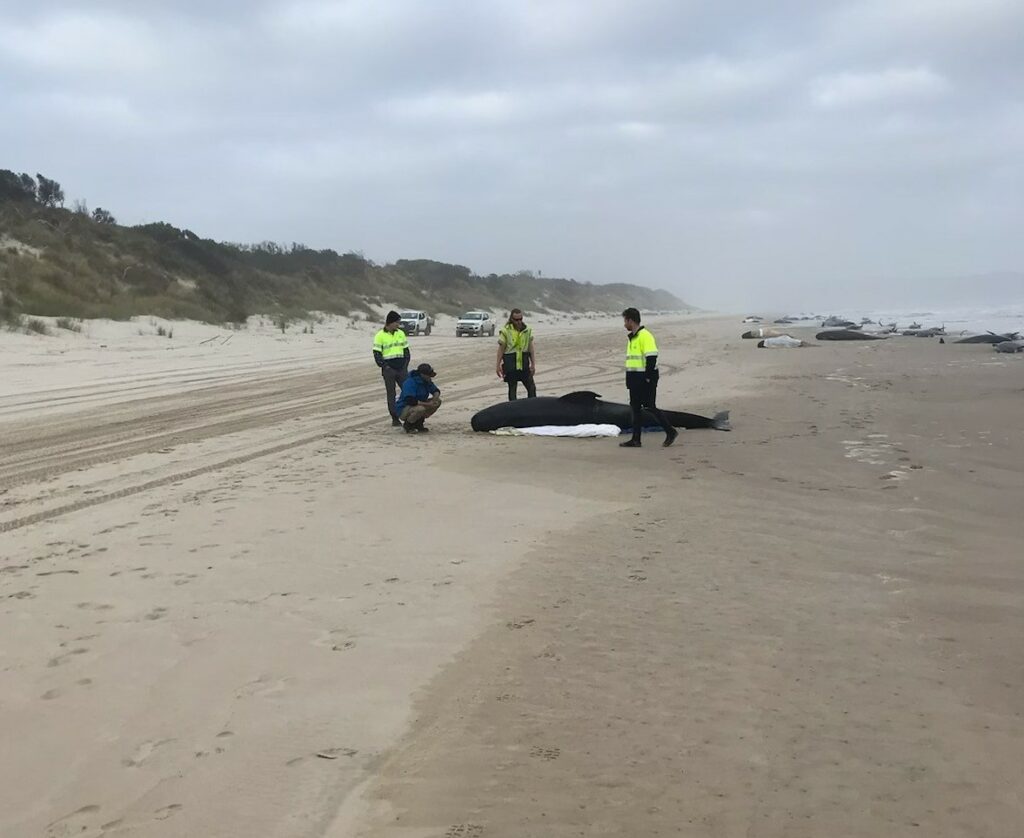Around 200 stranded pilot whales have died on Tasmania’s coast, with just 32 rescued and released back into the sea.
Wildlife experts say attempts are being made to return another three of the whales to the ocean, but work is being hindered by the arrival of night time and heavy ocean currents.
The pod became stranded on Wednesday on sandflats and beaches close to the town of Strahan.
On Thursday morning (local time), authorities said only 35 of the 230 cetaceans on Ocean Beach had survived. And rescue co-ordinator Brendon Clark, said later that 32 of those 35 animals had been successfully rescued.
‘We still have three alive on the northern end beach, but because of access restrictions, predominantly tidal influences, we just haven’t been able to access those three animals safely today, but they’ll be our priority in the morning,’ he added.
A team from the Department of Natural Resources and Environment Tasmania Marine Conservation Program (MCP) headed up the rescue attempt, aided by police and locals who covered the stranded mammals with blankets and poured water on them to try and keep them alive.
The department’s wildlife biologist Dr Kris Carlyon said equipment from an aquaculture company helped to lift the surviving whales off the dry sand, before they were moved into deeper water by boat.
He said: ‘Our priority is animal welfare in this situation along with protecting our staff and volunteers who have specialised training in whale rescue and can undertake this task safety.’

The cause of the stranding is still not determined – however global warming is a possible factor, according to marine scientist Olaf Meynecke, based at Brisbane’s Griffith University.
He said it could be a result of warmer temperatures changing the ocean currents and moving the whales’ food sources.
Dr Meynecke explained: ‘They will be going to different areas and searching for different food sources.
‘When they do this, they are not in the best physical condition because they might be starving so this can lead them to take more risks and maybe go closer to shore.’
Recurring Issue
This is not the first such mass stranding on Ocean Beach. In September 2020, a huge rescue operation was launched when almost 500 pilot whales became stranded. More than 380 died, but about 100 survived thanks to rescuers.
Australian wildlife scientist Vanessa Pirotta told the BBC that similarities between the stranding and the last one – the same species, at the same place, and at the same time of year – are ‘unusual’ and concerning.
She said the whales may have ‘misnavigated’, followed a sick or disoriented leader, or been startled into shallow waters.
The stranding comes a day after a separate incident in northern Tasmania, which saw 14 young sperm whales found dead on King Island, in the Bass Strait.











